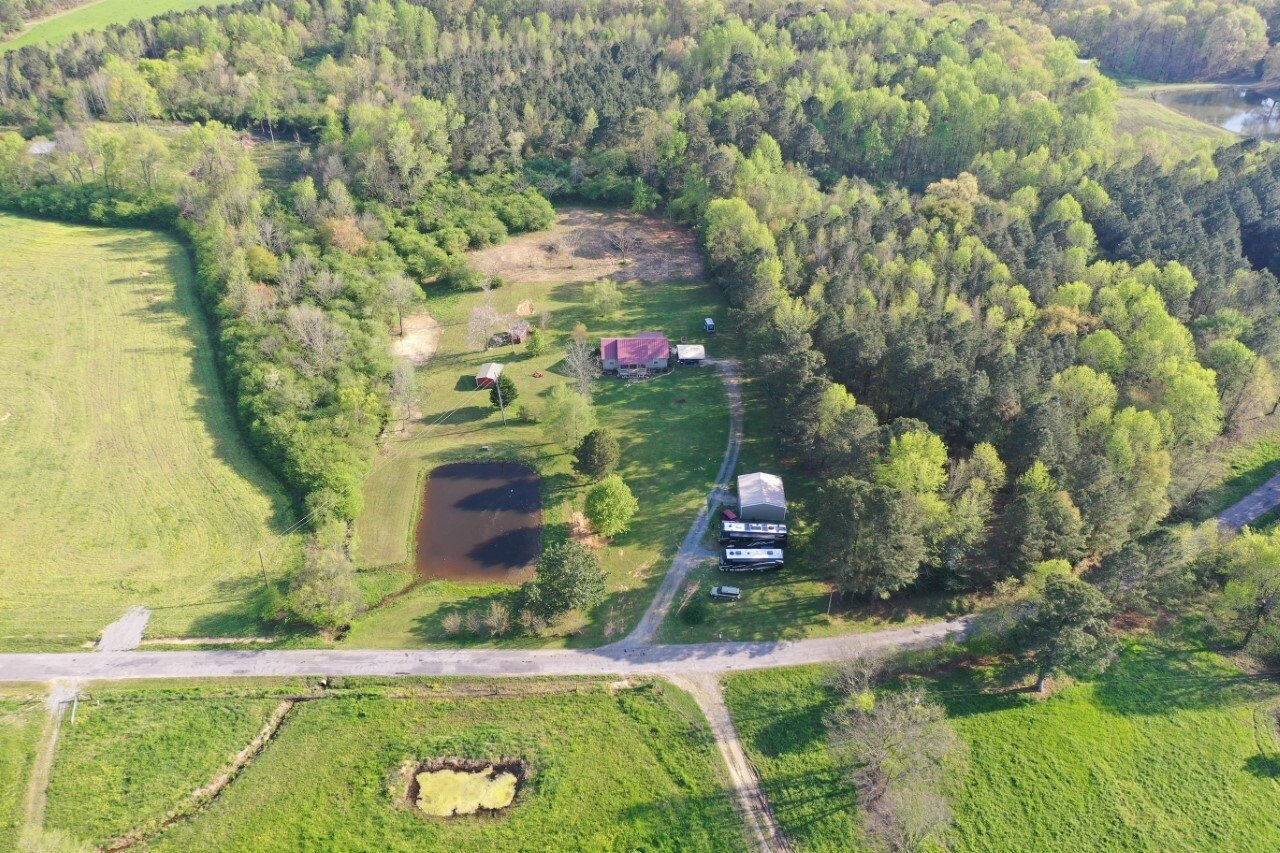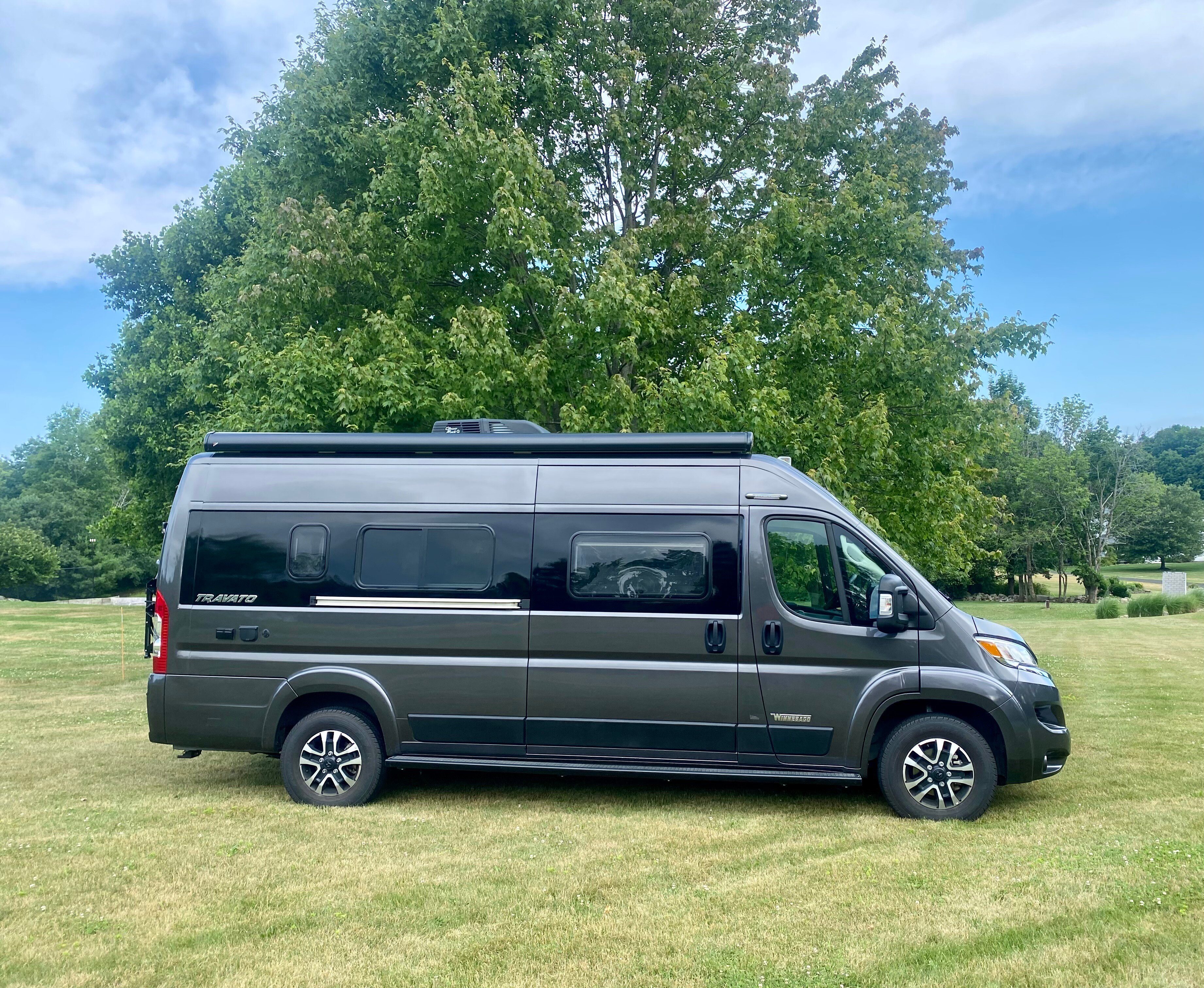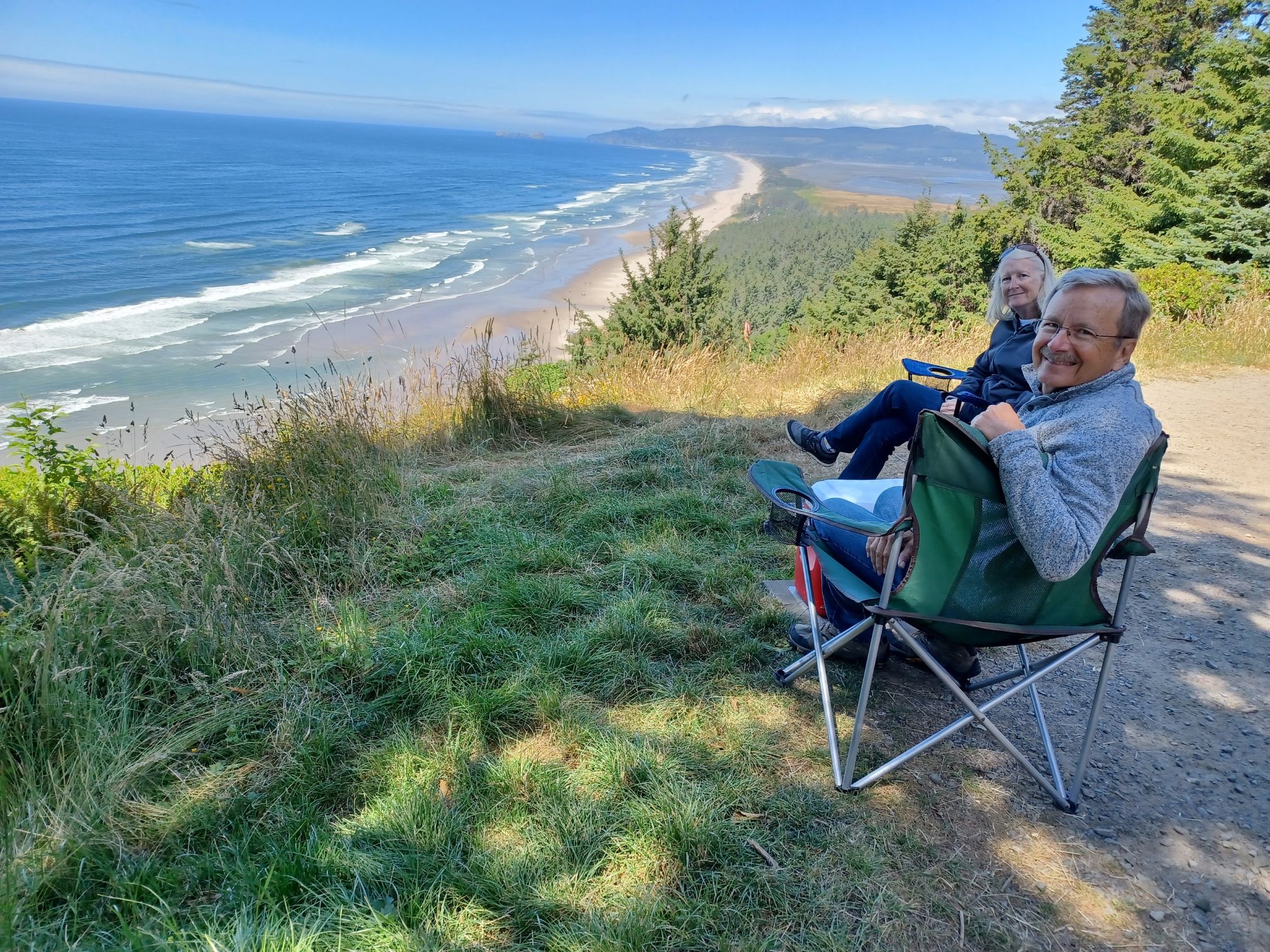Boondocking, Dry Camping, Dispersed Camping – What’s the Difference?
For some reason seeing these terms used incorrectly always seems to rattle me, especially when it comes from someone who’s been doing all three of them (boondocking, dry camping, and dispersed camping) for as long or longer than we have (nearly 20 years). I’m not a stickler for perfection (as you may notice if you’re nit-picky about grammar and punctuation), but since it does bother me for whatever reason, I hope you’ll allow me to politely educate you.
I’ve seen arguments erupt on forums over the correct definitions so, while you may think you’re right, so do I! (And guess what – this is my blog so you’ll be getting my opinion ) To reassure you it’s not a serious complaint, I’ll start with a personal anecdote:
Shortly after we launched Boondockers Welcome, we realized there are people who now think Anna and I invented the word, boondocking, to describe what our members do when they park on a host’s property. It made us smile. But, if you are among those who thought that, please know we’re not laughing at you. Anyone new to RVing will soon realize there are many strange new terms to learn. And what could be a stranger word than “boondocking?”
I’m not sure when or how exactly the word boondocking originated; however, it’s definitely grown in usage among RVers since the advent of the Internet. So, I guess we contributed, at least slightly, to its current level of popularity. But no, we didn’t invent it.
Here are my definitions of these three terms. In my opinion, they’re too often used interchangeably when they really shouldn’t be.
The definition of boondocking is camping, in an RV, for free, outside of an established campground, without hookups or access to other amenities.
All of the above conditions must apply or, in my opinion, it’s not boondocking. So, no, you can’t be boondocking if you’re in a tent, if you’re paying for the campsite, or are in a campground, no matter how basic. The purest definition actually adds one more condition: that you must be “in the boonies”, away from civilization. I won’t argue with that – I’m sure it’s part of the true original definition. By leaving it out, I’m simply acknowledging that common usage of the word has expanded to allow for additional places, not just “in the boonies” (which, after all, is a relative term).
Dry Camping is camping, in an RV, without any hookups.
Dry camping can be free or entail a fee. Amenities such as tables or washrooms may be available or not. You can be either in a campground or outside one. But since tents don’t have hook-up capability in the first place, calling tent camping dry camping would be redundant.
Again, I’m not 100% sure where this term originated. The common theory seems to be it refers to camping without water access, therefore, needing to bring your own. My interpretation is that, even when water and/or electric are available, if you’re not “hooked up to it,” you’re dry camping.
Dispersed Camping is camping in an RV, a tent, or without any form of shelter, for free, outside of an established campground, on public land (owned by some level of government), without hookups, or access to other amenities.
You’ll see dispersed camping mentioned in the literature and web sites of public land agencies such as national and state parks, national and state forests, wilderness areas, and BLM (Bureau of Land Management). If you were to walk into a national forest or BLM office and ask if they can help you find boondocking, you would likely get a strange look. It’s dispersed camping to them. Although, if you are in an RV – you’ll actually be boondocking as well as dispersed camping.
So, What’s in a Name?
According to those definitions, we technically could have named this site, Dry Campers Welcome. But it just doesn’t have the same ring to it as Boondockers Welcome, does it? And it’s probably easier to explain what boondocking is than to have to explain that our hosts welcome RVers even if they’re a little wet on arrival.
Spinoffs and related terms
While I’m on a roll, here are my definitions for other associated terms you might come across:
Designated Dispersed Camping: An oxymoron for sure. But some public land agencies are now limiting dispersed camping by designating the exact spots where you’re allowed to camp.
Freedom camping or free camping: Common terms used in Australia and New Zealand to describe camping in a tent, vehicle, or any form of camper, in a public area that’s not a designated campground.
Wild Camping: A common term used in Europe to describe camping in a tent, vehicle, or any form of camper, in a public area that’s not a designated campground.
Blacktop Boondocking: Boondocking in a public parking lot.
Wallydocking: Boondocking in a Walmart parking lot.
Moochdocking: Boondocking on a friend or relative’s property.
Stealth Camping: Inconspicuous camping. Being careful to hide the fact you’re spending the night in a vehicle (usually where it’s illegal to do so).
Car Camping: You arrived at your camping location by car and will likely set up a tent. It does not mean sleeping in a car.
Boondocking (alternate meaning): Another common use of this has nothing to do with RVing at all. It’s a snowmobile term and describes off-trail exploration in back country with virgin snow. But, although I’m Canadian (and some may think we travel by snowmobile all winter) that definition comes from outside my area of expertise. I had to google it, so I could be wrong.
I might also not completely understand the European and Down-under terms. So, if you’re interested in educating me, I welcome your definitions or just some additions and corrections. What IS a definition, after all? According to one source (that I googled), it’s a statement of the exact meaning of a word or phrase. If looking for the “exact” meaning sounds a bit too nit-picky, please know that I don’t need to be right about any of this. But I’ll continue to think I am – until you convince me differently, of course.
Happy camping, folks – no matter where you do it or how you define it.
Learn More About Boondockers Welcome
We promise not to spam you!







Thank you for all this info. We are new at this and I found it fascinating what the terms mean. I have not ran across all of them of cause, however when I do I will at least now know what they mean.
Jennifer
To me “boondocking” is being autonomus , after all those RV are equipped with batteries, reservoirs , fresh water , so, to me why should I be “connected” ? with the solar panels add-on , I can live around 10 days in our 22 feet Class C before we dump ….
We switched to Led lights, we favour good blankets for sleeping when colder , we use the water that was used to clean dishes to flush the toilet ….So many things to learn …..
but to me all those camping definitions ,tell me it`s all boondocking in different ways, whether I sleep in a Walmart yard or in a desert …..Are you Marianne that wrote the books on boondocking ? If so , we bought them all , what a gem ! Cant leave without them !
Daniel & Sylvie , QC .
PA state forest service uses the term “Vehicle Camping” which closely fits the definition Designated Dispursed Camping above. A free permit for a specific site is required.
Liked your article defining the terms we use! I agree completely and we love your sense of humor!
Dick and Karen Hime @ Our Place
Thanks for your articles are very informative and I enjoy them I am also trying very hard to find a camper to buy because I’m going to live in a camper for quite some time until I get my health issues in order and then I’ll settle somewhere maybe and buy a home but for now thank you for all you do hope to keep reading what you have
I am interested in boondocking, dry camping, and dispersed camping. It’s fascinating to see how each term has its own unique meaning and how often they are used. As I am a new to RVing, I really find these terms confusing. I searched for additional resources for my college education, and found answer on https://www.quora.com/Is-EduBirdie-legit where students shared their reviews of EduBirdie. Now, I know how to manage my tasks effectively, so I can research more about types of camping make the most of my future experiences.
Happy camping to all of you guys, and thanks for sharing your expertise!
This article helps me better understand slice master Boondocking, Dry Camping, Dispersed Campin.
Escape the hustle and bustle of city life and unwind in the serene ambiance of naran valley. With its picturesque vistas and peaceful atmosphere, Naran Valley is the ideal destination for those seeking relaxation and rejuvenation amidst nature's splendor.
Shalamar Hospital is your destination for top neurological care in Lahore, with the best neurologist in Lahore providing expert consultations and treatments.
Osh University’s Medical faculty is dedicated to providing advanced training and education for healthcare professionals, equipping them for excellence in their fields.
it is amazing tour in bitlife unblocked game.
For the best surgeon for gallbladder removal in Karachi , consider Dr. Abdullah Iqbal at Hill Park Hospital.
For piles surgeon in Karachi, Dr. Ali Raza at Aga Khan University Hospital is highly recommended.
Explore prime investment opportunities in Istanbul property market and secure your future today. Invest in Istanbul
Unlike traditional streaming platforms, Flixfox TV provides an extensive library of content, catering to diverse tastes and preferences.
One of the standout features of Xender is its high-speed file transfer capability. The app can transfer files at a speed of up to 40 MB/s, making it one of the fastest file-sharing applications available. This ensures that even large files are transferred quickly and efficiently.
Great article on the different types of camping! I’ve been getting into boon docking lately and it’s such an adventure. By the way, if anyone’s looking for a reliable CISCO3945/K9 router, I highly recommend getting it from DirectMacro. They offer the best deals and excellent service!
Great article on the different types of camping! I’ve been getting into boon docking lately and it’s such an adventure. By the way, if anyone’s looking for a reliable [url=https://directmacro.com/cisco-cisco3945-k9-router.html]CISCO3945/K9 router[/url] router, I highly recommend getting it from DirectMacro. They offer the best deals and excellent service!